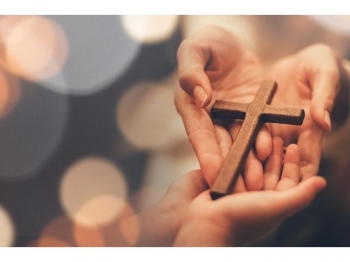
.png) Dr Suresh Mathew
Dr Suresh Mathew

‘Looking for a black cat in a dark room that is not there.’ This analogy comes to mind when one reads the recent Supreme Court observation on ‘forced religious conversions.’ To have a better understanding of the issue it is important to take a close look at what the Judges of the apex court said: “The issue with respect to alleged conversion of religion, if it is found to be correct and true, is a very serious issue which may ultimately affect the security of the nation as well as the freedom of religion and conscience of the citizens.”
The remark comes with ‘ifs and buts’ as the Judges themselves are not sure of any ‘forced religious conversion’ taking place on the ground. The case is based on a complaint regarding an ‘alleged conversion’ and the hearing is in progress before the Bench. In fact, a similar case filed by the same complainant was dismissed by a different Bench last year, observing that the Constitution allows joining of any religion of choice and that is why the word ‘propagate’ is included in Article 25 of the Constitution.
The proof of the pudding is in eating. In the past, there had been several cases filed in various courts across the country against ‘alleged religious conversions’ but hardly any conviction has taken place. What more proof is needed to show that such complaints are the ‘creation’ of fundamentalists with ulterior motives. The sinful mind of those bragging about ‘forced conversions’ found its ex
One should bear in mind that Article 25 of the Constitution of India permits ‘right to freely profess, practice and propagate religion.’ There are laws under Indian Penal Code which can take care of violation of this provision. Still, about a dozen States have brought in anti-conversion laws which talk about conversion through force, allurement, intimidation, etc.
Often such loosely worded provisions of laws are stretched to ridiculous levels to include even social and humanitarian works done by Christian organizations or various churches as instances of forced conversion. This is an affront to both the benefactors and the beneficiaries of such humanitarian activities, driven by human concern. Looking at altruistic acts with the jaundiced eye of conversion is an insult to the beneficiaries and demoralization to those who involve in philanthropical works.
Those who are out to fish in muddy water, in the name of conversion, should turn back to their backyard to see what is rotting there. If the Dalits and down trodden opt for conversion, it is often an effort to come out of the heartless discrimination they are subjected to. It is a revolt or protest against social bias they are faced with at every stage of their life. They turn to a new religion on their free volition and it should not be dubbed as forced conversion. In fact, the victims of social discrimination convert to other religions to escape physical and mental torture. Hence, one should take into account the circumstances that ‘lured’ and ‘forced’ them to opt for a religion of their choice before passing a judgment.